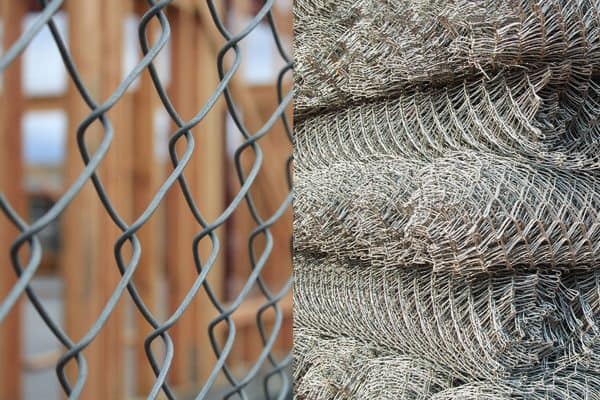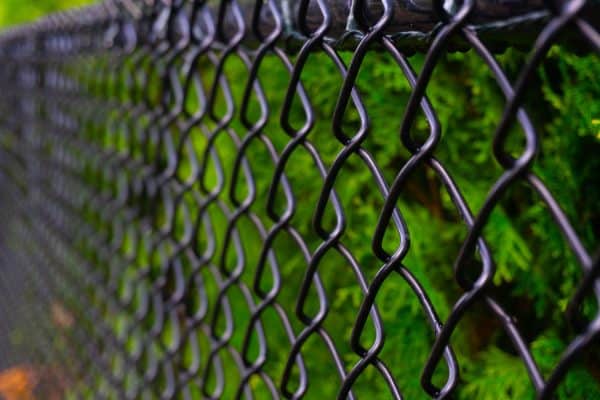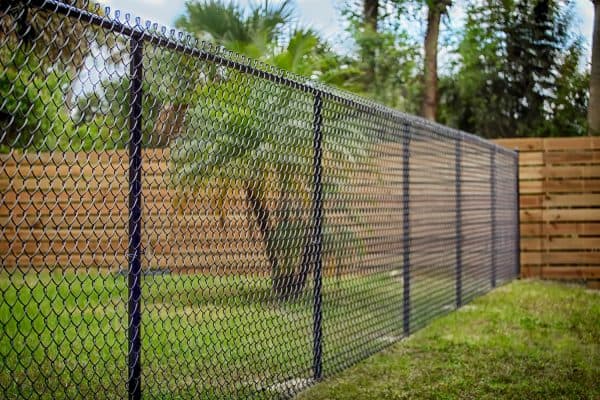One of the factors to consider when adding a fence to your property or replacing an old one is its maintenance. Are you wondering whether corrugated metal fences rust? We researched the topic, and we have an answer for you.
Corrugated metal fences are rust-resistant. The fences are also not susceptible to rot and mold. Thus, they are durable. They also retain their aesthetic appearance regardless of the weather.
Read on as we discuss the benefits and drawbacks of corrugated metal fences. We will also explore which is an ideal metal for fences and ways you can keep fences from rusting. Let's get into it.
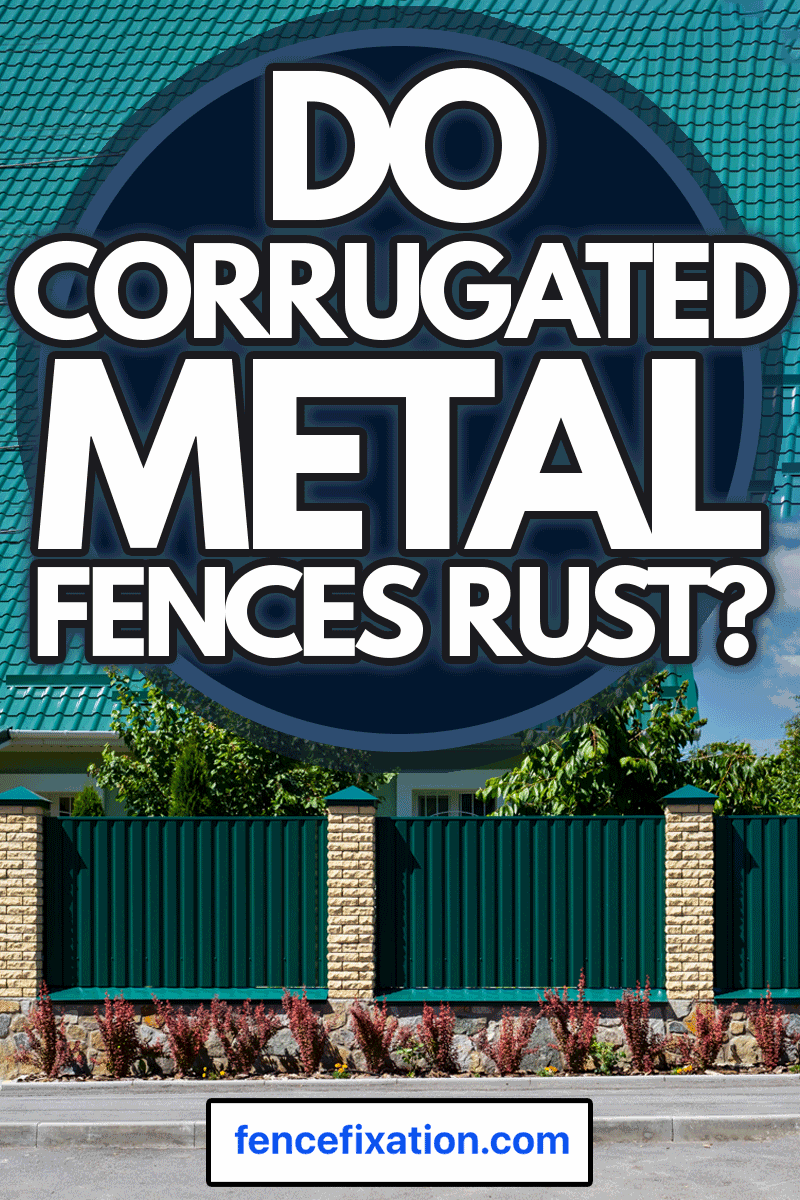
Benefits and Drawbacks of Corrugated Metal Fences
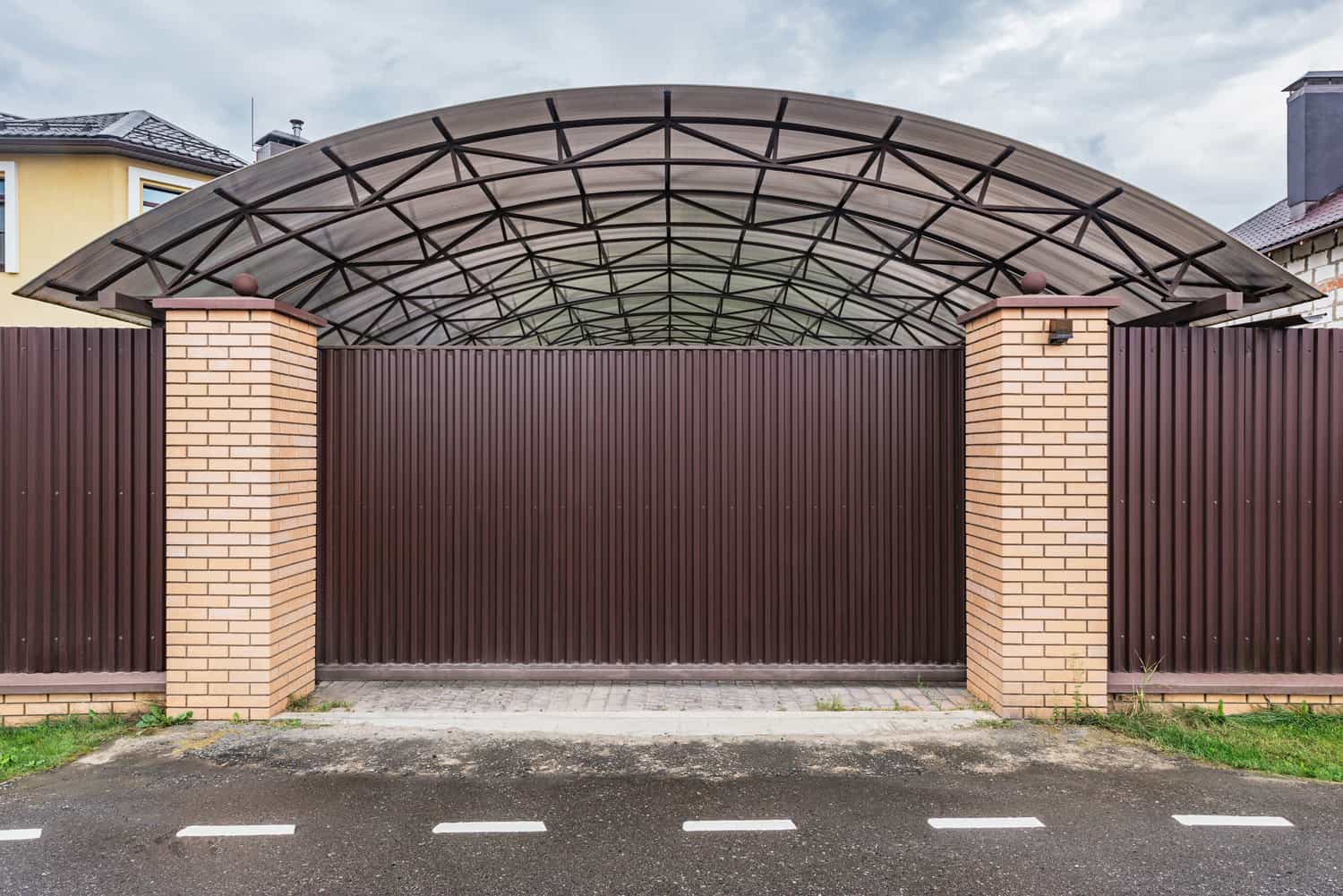
A fence provides safety, style, and functionality to your property. It can also increase property value. Therefore, it is important to carefully consider the type of fence you install. This section focuses on factors to consider before investing in a corrugated metal fence.
Benefits
Easy To Maintain
Fences are exposed to natural elements such as rainfall and other sources of moisture. Moisture makes fences that are made from metal more susceptible to rust.
Since corrugated metals are galvanized, they are rustproof. Furthermore, they are also mold and rot-resistant. You, therefore, do not need to stain, paint, or apply a sealant as you would wooden fences to protect the fence from moisture problems.
You will also not need to do a lot of preparation work before installing the fence since they work well even on a sloped landscape.
Durable
Corrugated metal fences hold up well in all climatic conditions. The thicker the fence, the longer the lifespan. Moreover, the fences are immune to insect damage such as termite infestation that would otherwise force a premature fence replacement.
The grooves and ridges on the corrugated metal fences readily drain water off the fence, reducing the chances of water damage. This design further helps to protect the frame from premature decay.
However, if you opt for wooden frames, it would be best to use pressure-treated wood since it is not easily damaged by water and is less prone to insect infestation or rot. You want to ensure that the frames last the full lifespan of your fence.
Light And Easy To Install
The grooves on each metal panel eliminate the need for the fence to be thick to be very strong. Thus, while the fence is lightweight, it is still as sturdy.
These fences' installation is straightforward, making it easy to embark on the project as DIY. Furthermore, it is easy to work with the panels in different conditions or terrains since they are light.
Sustainable
Corrugated metal is made from recyclable materials. The old sheets are smelted to form brand new sheets.
Similarly, you can easily recycle these panels at the end of their useful life. The old metal sheets can make chicken coup or be installed in structures that do not need a fully functional covering, such as a kennel.
Its long lifespan also eliminates the need to replace the fence frequently. With proper care, you can expect the fence to serve you for at least 25 years if you have an entry-level thickness.
On the other hand, the thickest panels can remain in use for up to 75 years. On average, they last for about 40-60 years.
Drawbacks
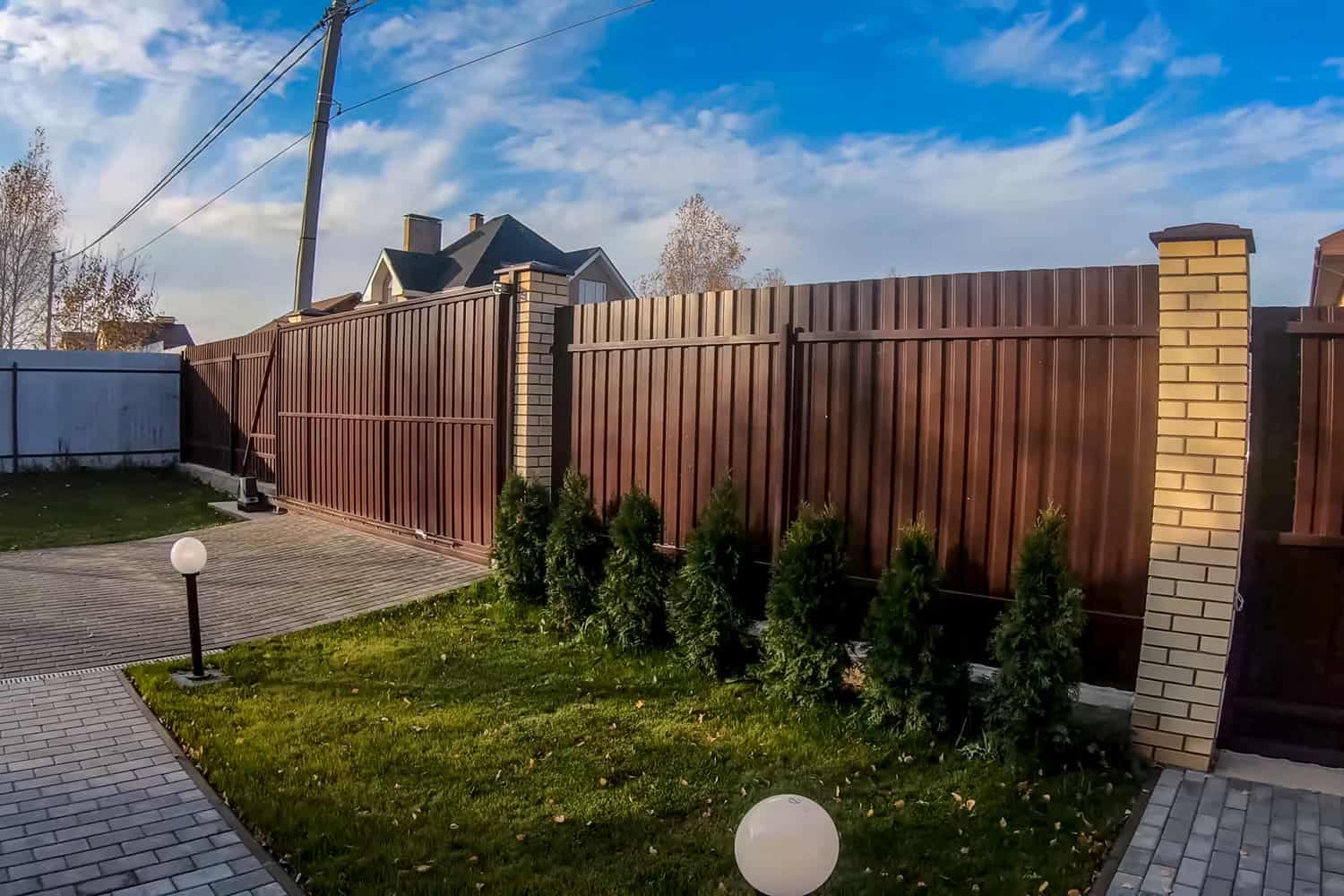
Sharp Edges
The thin metal sheets have sharp edges that can be hazardous if installed at a lower level. You should frame these edges to minimize the potential for injuries, such as children or pets cutting themselves.
Limited Variety
The corrugated metal fences often come in a grey shade. For this reason, you may need to work with a professional contractor or a wholesale supplier if you would like to customize your metal fence. Consulting a contractor increases your installation costs.
You may also have difficulty accessing the corrugated metal fence products since most local hardware shops do not sell them. The initial investment when installing the fence spikes due to the extra shipping costs incurred by purchasing them online.
Require Galvanized Installation Materials
It is recommended to use galvanized installation materials such as bolts, screws, and other metal accessories to avoid rusting at the points of contact with other materials. In addition, the materials used for framing and anchoring should also be galvanized to ensure that all the fence components have a similar expected life.
Noise
The corrugated metal fence can reflect sound waves because of the grooves in their design, creating a noisy effect on your property. But you can counter the sound amplification by adding sound panels to your structure. The panels lower the reflection of sound waves.
What Type Of Metal Is Best For Fence?
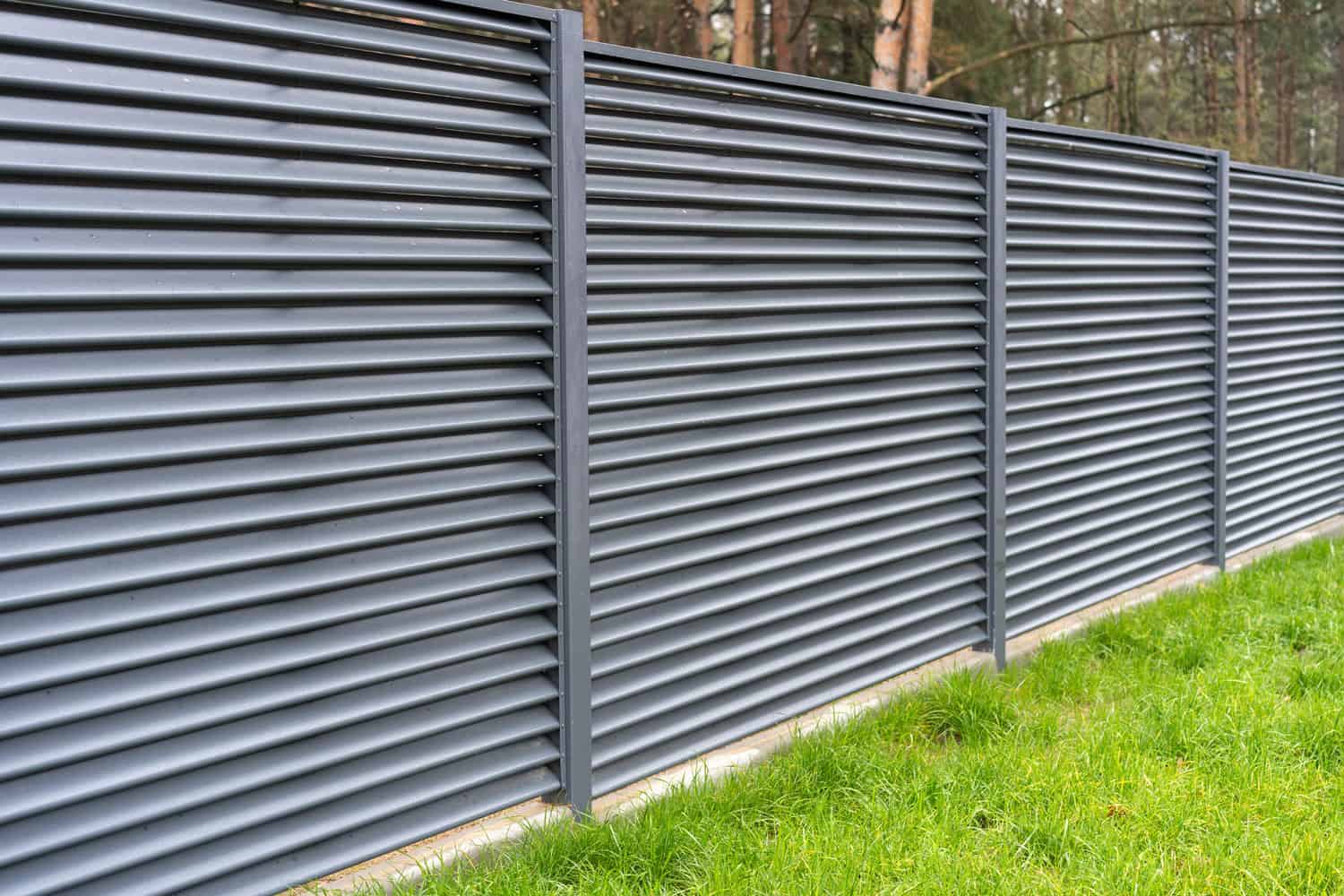
Although wood is an appealing and affordable fencing option, it degenerates, fades, and wears out quickly - especially when subjected to extreme weather conditions. So, metal is a suitable alternative to the wood while fencing since, overall, it holds up better in these extreme conditions.
These are some metal types you can choose from for your fence.
Galvanized Steel
Galvanized steel is very strong. It endures everyday wear and tear and also withstands harsh climatic conditions. Because it is very sturdy, it secures your property since you cannot easily cut through it. In addition, it is durable and easy to work with on yards with slopes.
Examples of galvanized steel fences include chain link fences, wire fences, or even steel panel fences. Chain link fences are more commonplace since they can easily be adapted into different shapes or sizes and can accommodate various roles.
Wire fences are typically used in gardens or for similar light uses. You can use them to protect plants from being eaten by animals, provide support for creeping vines, or create enclosures for chickens.
The downside of using chain links is that they may not be permissible in some neighborhoods or by some homeowners' associations. They are also not very attractive and can provide an easy way to climb the fence, especially when the steel wires have wide weaves.
Wrought Iron
Wrought iron fences are often used in urban or historic areas. They create durable barriers while maintaining a stylish, decorative style and an unhindered view of your property.
The wrought iron pieces are powder-coated to safeguard them from elements. But the powder coating eventually wears out, making the fence susceptible to rusting. Thus, these fences require constant maintenance to prevent rusting or corrosion.
Wrought iron is also very heavy and difficult to fix, thus not labor efficient. In addition, this fence type is not ideal for a section that has a slope. It is also very expensive to purchase.
Aluminum Fences
Aluminum fences are a good alternative for people who want the wrought iron look without spending as much money and dealing with its heaviness and constant maintenance.
Since aluminum does not rust, it requires little maintenance to serve you efficiently. You can also slope sections of your fence to suit uneven terrain. However, this fence is not as strong as a wrought iron fence and can be bent easily.
How To Keep Fence From Rusting
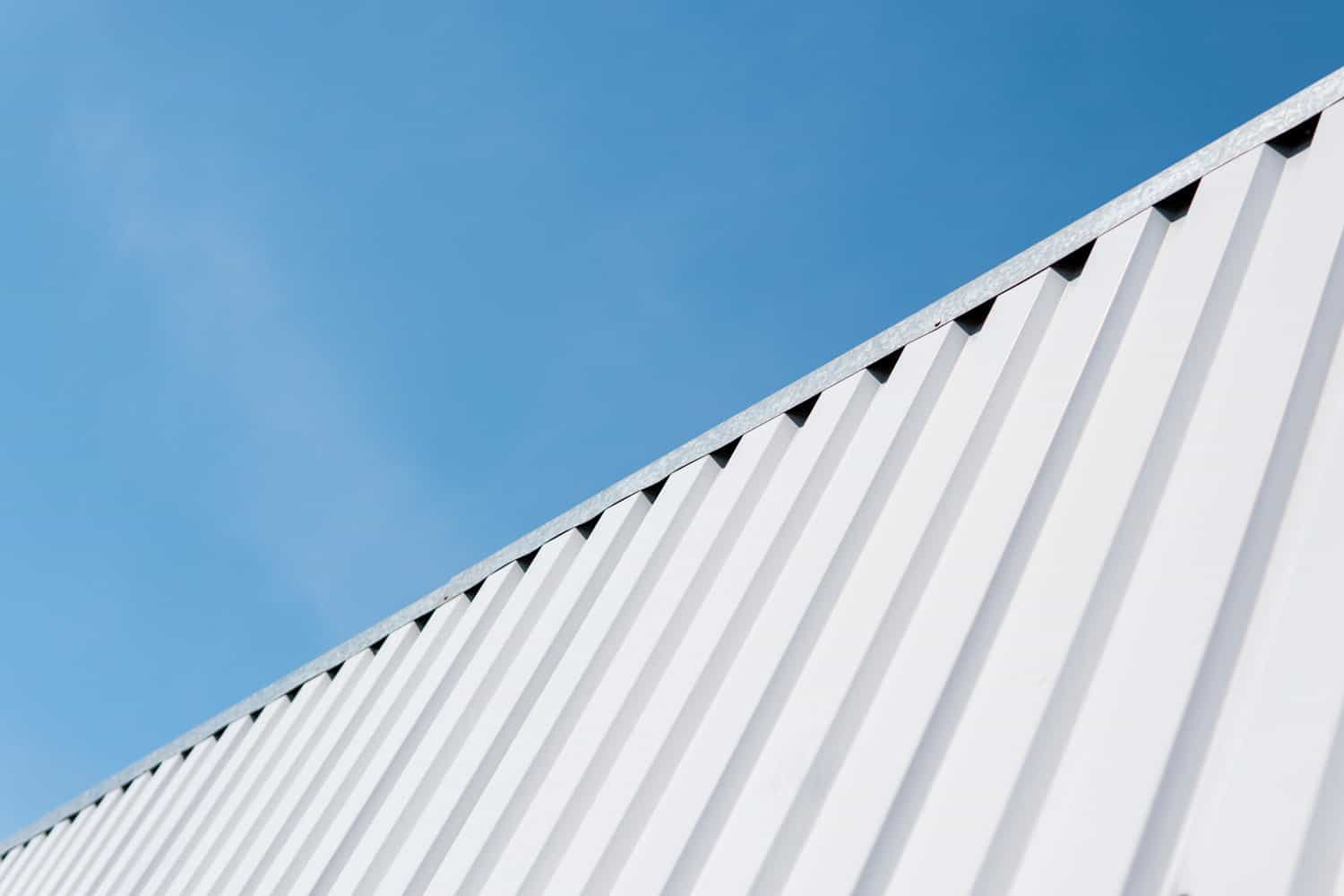
Because fencing your property is a tangible investment, you want to take good care of it to ensure that you get the most from its shelf life. Rust weakens your fence, creating weak points that thieves and burglars can take advantage of.
These tips will guide you on how to keep your fence from rusting.
Clear Overgrowth
It is advisable to keep the area around fences clear. Vegetation traps moisture which could cause moisture damage such as rot and corrosion on your structure. Vegetation also blocks problem spots from view.
Clean The Fence
Use warm water and soap to clean the fence several times each year. Cleaning maintains the aesthetic appearance of your fence by preventing build-up and discoloration. Cleaning also gets rid of chemicals that can accelerate rusting.
If you notice rust forming on your fence, gently use a wire brush to remove it. Often, removing the thin layer of rust prevents further corrosion.
Add A Coating
Choose the best coating that you can afford suitable for your area's climatic conditions. Scrap off the older coating before adding a new layer to ensure that the new layer works effectively.
Painting your fence also protects it from rusting. Ensure that you apply a thick layer since the paint functions as a primary defense against elements.
Wrapping Up
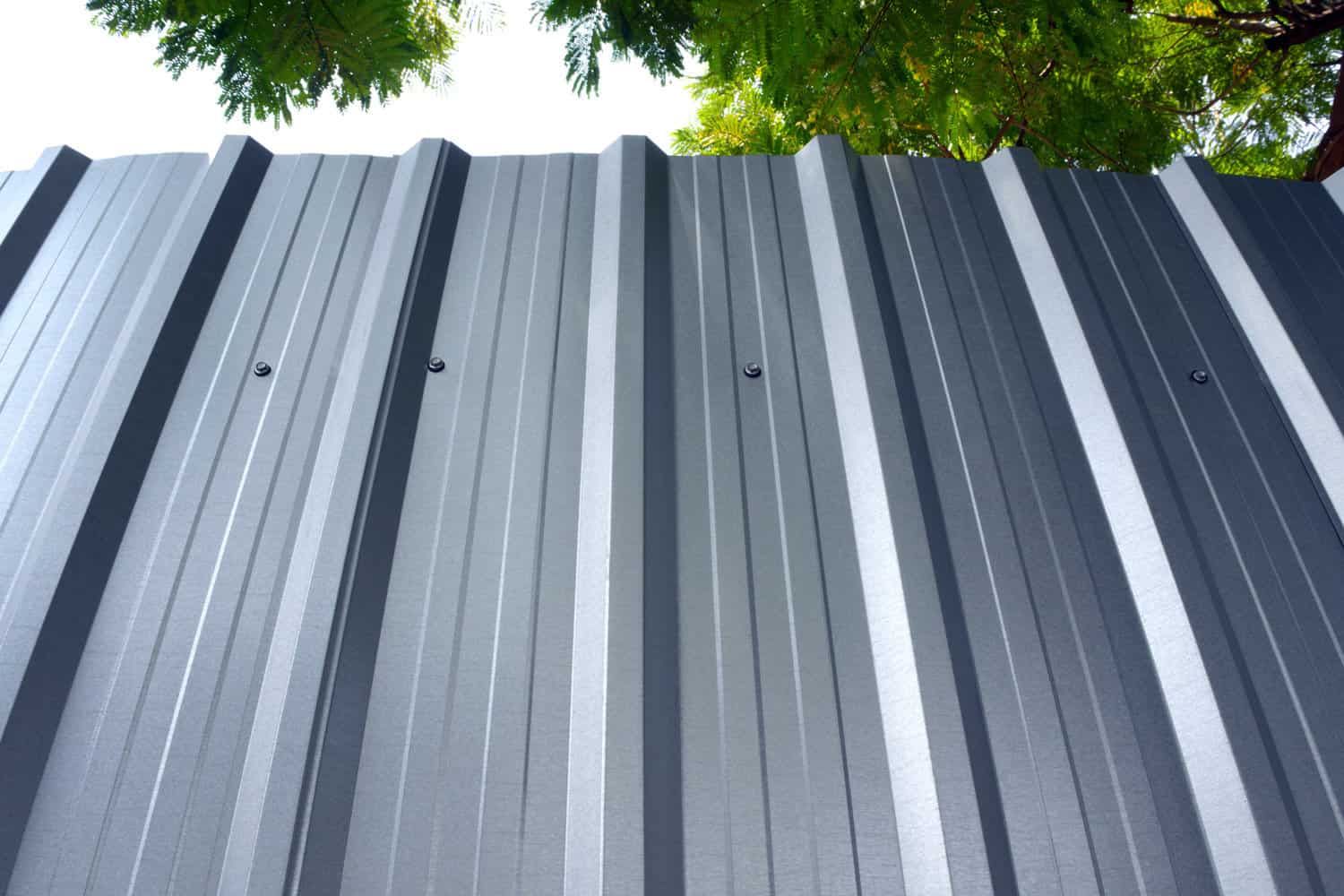
Because a corrugated metal fence is galvanized, it does not rust. For this reason, it is easy to maintain since it does not need to be stained repeatedly to prevent rusting. It is also very durable and sustainable as the corrugated metal can be recycled or smelted to form new sheet panels.
There are a variety of metal fencing options available on the market. Ensure that you pick one that meets your needs and is within your budget. Additionally, regularly maintain your fence to ensure that you maximize the benefits accrued from fixing the fence.
These topics may pique your interest:

